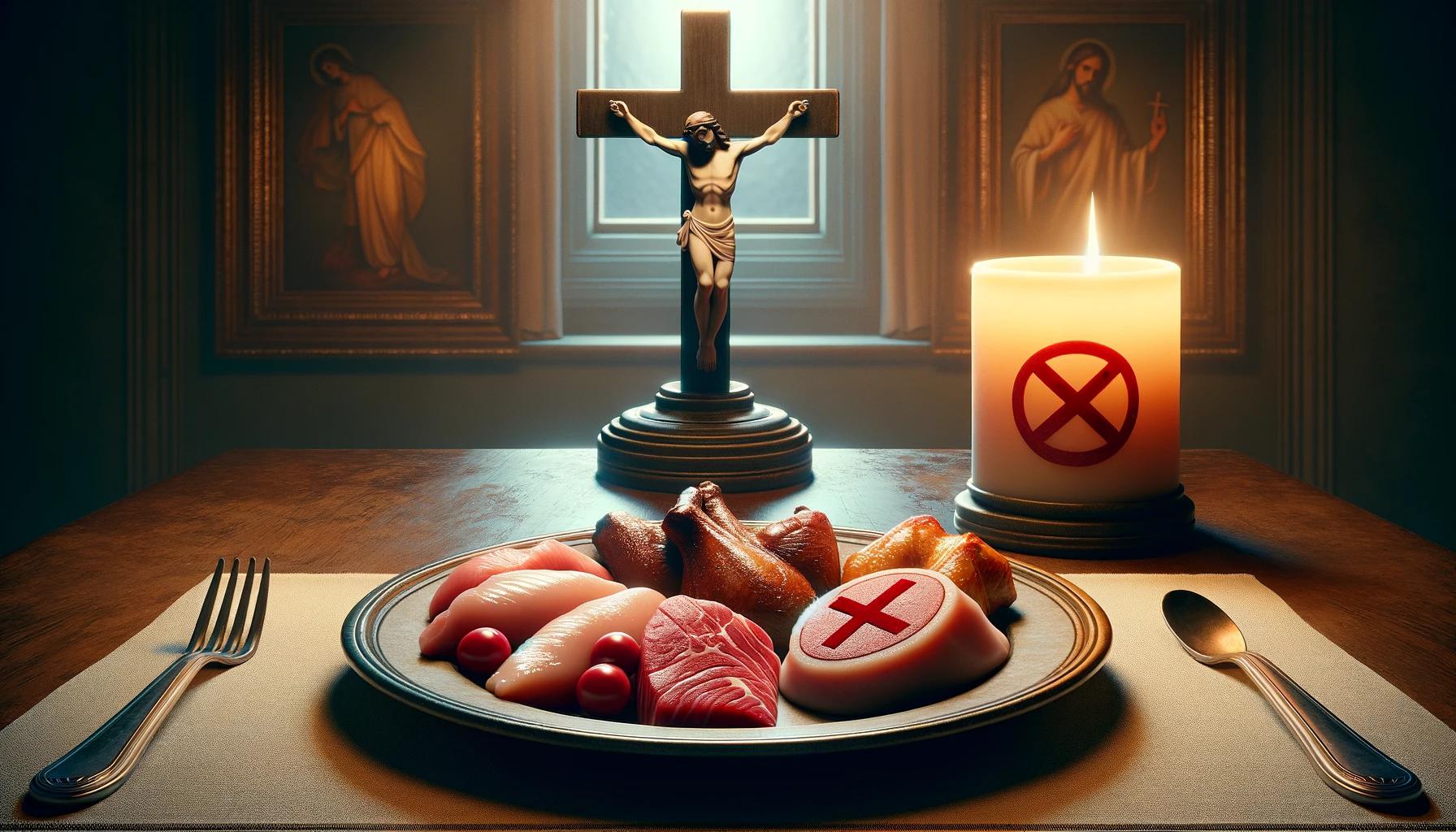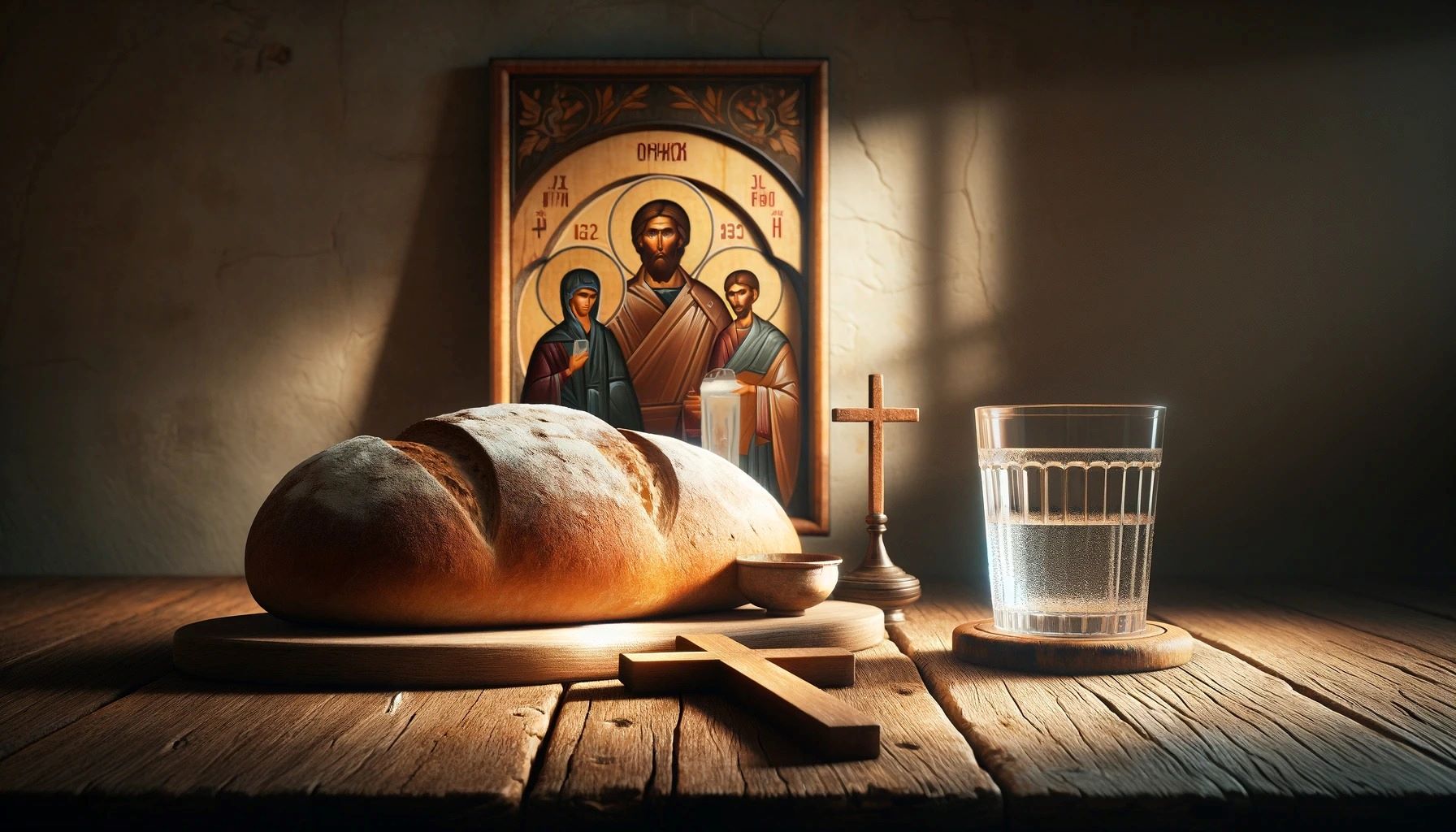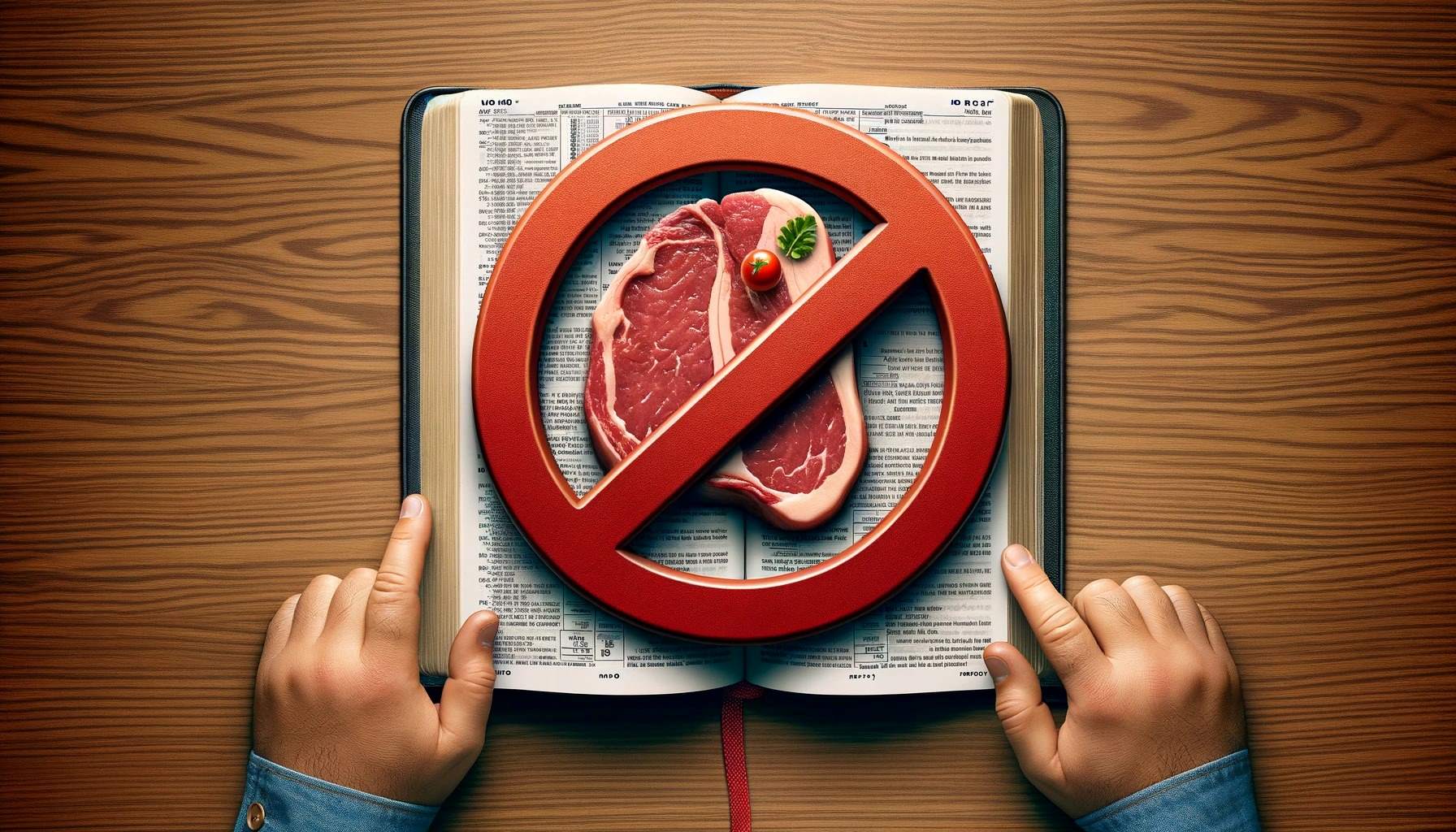Home>Special Themes>What Religions Don’t Eat Meat During Lent?


Special Themes
What Religions Don’t Eat Meat During Lent?
Published: February 27, 2024
Ericka Andersen, an editor at Christian.net, expertly merges digital strategy with content creation, focusing on faith and societal issues. Her communication skills enhance the platform's engaging narratives, fostering meaningful dialogue on belief's impact on society.
Discover which religions abstain from eating meat during Lent and explore special dietary themes during this period. Learn about the significance and traditions of meatless meals.
(Many of the links in this article redirect to a specific reviewed product. Your purchase of these products through affiliate links helps to generate commission for Christian.net, at no extra cost. Learn more)
Table of Contents
Introduction
Lent is a significant period of fasting and spiritual reflection observed by many Christian denominations in the weeks leading up to Easter. During this time, adherents often abstain from certain foods, with meat being a common item restricted from the diet. However, the specific dietary restrictions during Lent can vary among different Christian traditions and even extend to non-Christian religions. In this article, we will explore the various religious practices related to dietary restrictions during Lent, shedding light on which religions do not consume meat during this solemn period.
Christianity and Lenten Dietary Restrictions
Lent is a solemn religious observance in the Christian liturgical calendar that begins on Ash Wednesday and ends approximately six weeks later, before Easter Sunday. During this period, Christians engage in fasting, repentance, moderation, self-denial, and spiritual discipline. The practice of abstaining from certain foods, particularly meat, is a common feature of Lenten observance in various Christian denominations.
The Tradition of Fasting in Eastern Orthodox Christianity
In Eastern Orthodox Christianity, Lent is known as the Great Lent and is characterized by a rigorous fasting discipline. The faithful are expected to abstain from all animal products, including meat, dairy, and eggs, for the entire duration of Lent. This period of fasting is seen as a way to purify the body and soul, and it culminates in the joyous celebration of Easter.
The Practice of Abstaining from Meat in Roman Catholicism
In Roman Catholicism, the tradition of abstaining from meat during Lent is observed on Ash Wednesday, Good Friday, and all Fridays during Lent. However, the definition of meat in this context typically refers to the flesh of warm-blooded animals, so fish and other seafood are often permitted. This practice of abstinence is seen as a form of penance and solidarity with the suffering of Christ.
The Lenten dietary restrictions in Christianity are not limited to the consumption of meat. Many individuals also choose to give up other indulgences or adopt additional spiritual practices during this period. The overarching goal is to engage in self-discipline and reflection, ultimately leading to a deeper connection with one's faith and a greater appreciation for the significance of Easter.
The Tradition of Fasting in Eastern Orthodox Christianity
In Eastern Orthodox Christianity, Lent is known as the Great Lent and is characterized by a rigorous fasting discipline. The faithful are expected to abstain from all animal products, including meat, dairy, and eggs, for the entire duration of Lent. This period of fasting is seen as a way to purify the body and soul, and it culminates in the joyous celebration of Easter.
The fasting rules in Eastern Orthodoxy are among the strictest in the Christian tradition. The avoidance of meat and other animal products is accompanied by limitations on the consumption of oil and wine, with fasting days increasing in frequency and intensity as Easter approaches. The faithful are encouraged to focus on prayer, repentance, and almsgiving, using the discipline of fasting as a means to draw closer to God and cultivate a spirit of humility and self-control.
The tradition of fasting in Eastern Orthodox Christianity is deeply rooted in the belief that by denying the body certain physical pleasures, individuals can redirect their attention towards spiritual growth and the cultivation of virtues such as compassion, generosity, and selflessness. The Lenten fast is not merely a matter of dietary restrictions but a holistic spiritual endeavor aimed at fostering a deeper connection with God and a greater awareness of the needs of others.
The Lenten fast also serves as a reminder of the sacrifices made by Christ and the early Christian martyrs, reinforcing the idea that spiritual strength and resilience can be cultivated through self-denial and perseverance. By abstaining from meat and other indulgent foods, Orthodox Christians seek to emulate the self-discipline and devotion exemplified by Jesus Christ, ultimately preparing themselves to fully partake in the joy of the Resurrection on Easter Sunday.
Read more: When Can You Not Eat Meat During Lent
The Practice of Abstaining from Meat in Roman Catholicism
In Roman Catholicism, the tradition of abstaining from meat during Lent is observed on Ash Wednesday, Good Friday, and all Fridays during Lent. However, the definition of meat in this context typically refers to the flesh of warm-blooded animals, so fish and other seafood are often permitted. This practice of abstinence is seen as a form of penance and solidarity with the suffering of Christ.
The decision to abstain from meat during Lent is rooted in the belief that by voluntarily giving up something as fundamental as meat, individuals can participate in the sacrificial nature of Christ's journey to the cross. It is a physical demonstration of spiritual discipline and a way to honor the ultimate sacrifice made by Jesus for the redemption of humanity.
The practice of abstaining from meat on Fridays, in particular, has a long historical precedent in Roman Catholicism. It is a tangible way for Catholics to commemorate the crucifixion of Jesus and to unite their suffering with his. By forgoing meat and partaking in simpler, meatless meals, Catholics are reminded of the solemnity of the occasion and are encouraged to reflect on the significance of Christ's sacrifice.
The Lenten dietary restrictions in Roman Catholicism extend beyond the mere avoidance of meat. Many Catholics also choose to engage in acts of charity, prayer, and self-examination during this period. The goal is to foster a spirit of repentance, self-denial, and spiritual growth, ultimately leading to a deeper appreciation of the Easter celebration.
The practice of abstaining from meat during Lent in Roman Catholicism is not viewed as a burdensome obligation but rather as a meaningful and transformative spiritual exercise. It serves as a reminder of the importance of self-sacrifice, compassion for others, and the enduring message of hope and redemption that lies at the heart of the Easter season.
Other Religions with Lenten Dietary Restrictions
In addition to Christianity, several other religions observe dietary restrictions during the Lenten period, often as a means of spiritual purification, self-discipline, and reflection. While the specific practices and dietary prohibitions may vary, the underlying purpose remains consistent across these diverse religious traditions.
-
Eastern Rite Catholic Churches: Similar to Eastern Orthodox Christianity, the Eastern Rite Catholic Churches, which are in communion with the Roman Catholic Church, observe Lenten fasting and abstinence from meat and dairy products. This practice reflects the influence of Eastern Christian traditions on the liturgical and spiritual practices of these churches.
-
Ethiopian Orthodox Tewahedo Church: In the Ethiopian Orthodox tradition, the observance of Lent, known as "Hudadi" or "Abye Tsome," involves a 55-day period of fasting and prayer. During this time, adherents abstain from meat, dairy, and eggs, as well as refrain from consuming alcoholic beverages. The fasting period culminates in the celebration of Easter, known as "Fasika," which is marked by joyous feasting and religious observances.
-
Coptic Orthodox Church: The Coptic Orthodox Church, based in Egypt and with a global presence, observes a strict fasting period during Lent, known as the "Great Fast" or "Holy Fast." This fast includes abstaining from meat, fish, dairy, and eggs for the duration of Lent. The Coptic Christian community views fasting as a means of spiritual discipline and a way to emulate the self-denial and sacrifice of Jesus Christ.
-
Syriac Orthodox Church: The Syriac Orthodox Church, an ancient Christian tradition with roots in the Middle East, also practices fasting and abstinence during Lent. The faithful abstain from meat, dairy, and other animal products throughout the Lenten season, engaging in prayer, repentance, and acts of charity as part of their spiritual observance.
-
Hinduism: While not directly related to the Christian observance of Lent, some Hindu communities practice dietary restrictions and fasting during specific periods, such as the holy month of Shravan or certain religious festivals. During these times, individuals may abstain from consuming meat, as well as certain other foods, as a form of spiritual discipline and devotion.
-
Buddhism: In some Buddhist traditions, particularly those that observe Vassa or "Buddhist Lent," monks and nuns may adhere to strict dietary guidelines during the three-month rainy season retreat. This may involve abstaining from meat and adhering to a vegetarian or vegan diet as part of their monastic discipline and commitment to non-harming.
These examples illustrate the diverse ways in which different religious traditions incorporate dietary restrictions and fasting practices as a means of deepening spiritual awareness, cultivating self-discipline, and expressing devotion to their respective faiths during the Lenten period. While the specific dietary regulations and cultural contexts may vary, the shared emphasis on self-denial, introspection, and spiritual growth underscores the universal significance of this observance across religious boundaries.
Conclusion
In conclusion, the observance of Lenten dietary restrictions, particularly the abstention from meat, is a widespread practice that holds deep spiritual significance across various religious traditions. From the rigorous fasting discipline of Eastern Orthodox Christianity to the penitential abstinence observed in Roman Catholicism, the Lenten period serves as a time of self-examination, repentance, and spiritual renewal for millions of adherents worldwide. Additionally, other religious communities, such as the Eastern Rite Catholic Churches, Ethiopian Orthodox Tewahedo Church, Coptic Orthodox Church, Syriac Orthodox Church, Hinduism, and Buddhism, also incorporate fasting and dietary restrictions into their observances during this solemn season.
The shared emphasis on self-discipline, compassion, and spiritual growth underscores the universal themes of sacrifice, humility, and devotion that permeate the Lenten period. Whether through the avoidance of meat, dairy, and other indulgent foods or the commitment to acts of charity and prayer, individuals from diverse religious backgrounds use this time to deepen their connection to their faith, reflect on the teachings of their traditions, and prepare for the celebration of Easter or other significant religious observances.
Ultimately, the Lenten period serves as a powerful reminder of the enduring human quest for meaning, transcendence, and spiritual fulfillment, transcending cultural and religious boundaries. It is a time when individuals seek to align their actions with their deepest values, express solidarity with the suffering of others, and cultivate a spirit of compassion and renewal. As such, the observance of Lenten dietary restrictions stands as a testament to the enduring power of faith, self-discipline, and the pursuit of spiritual growth in the lives of believers around the world.














